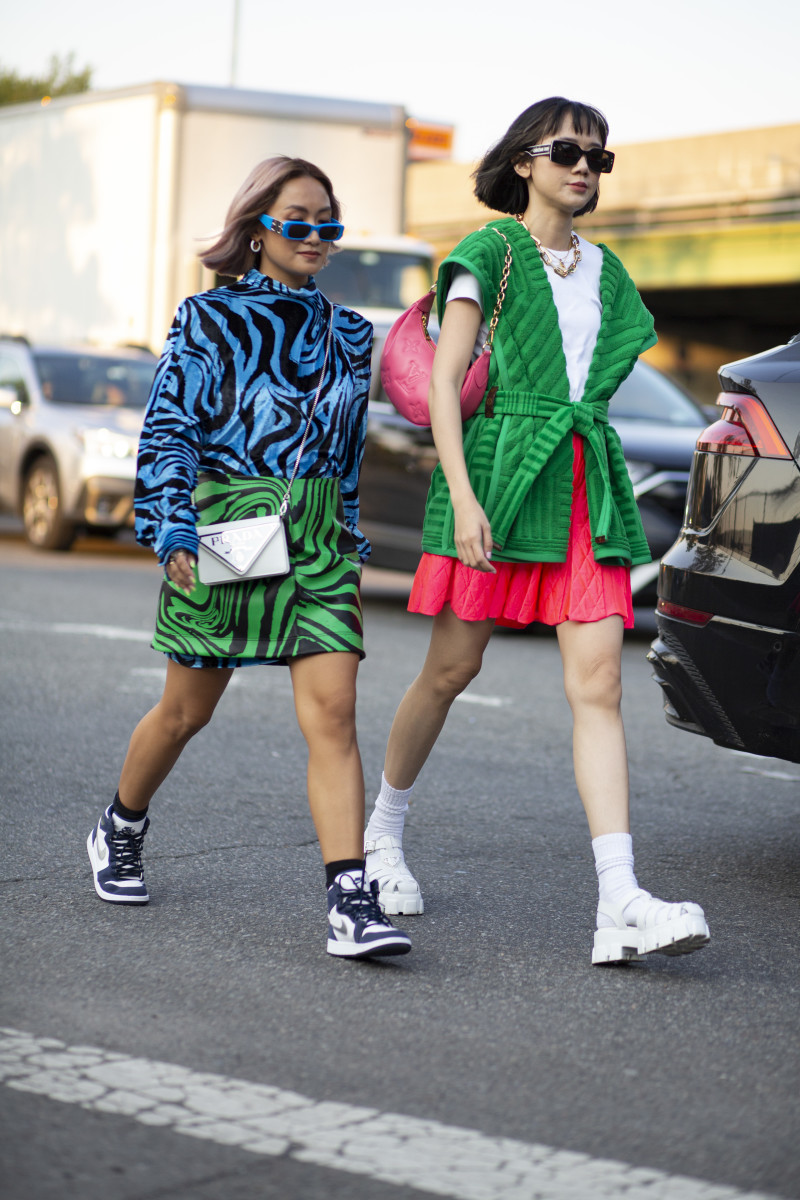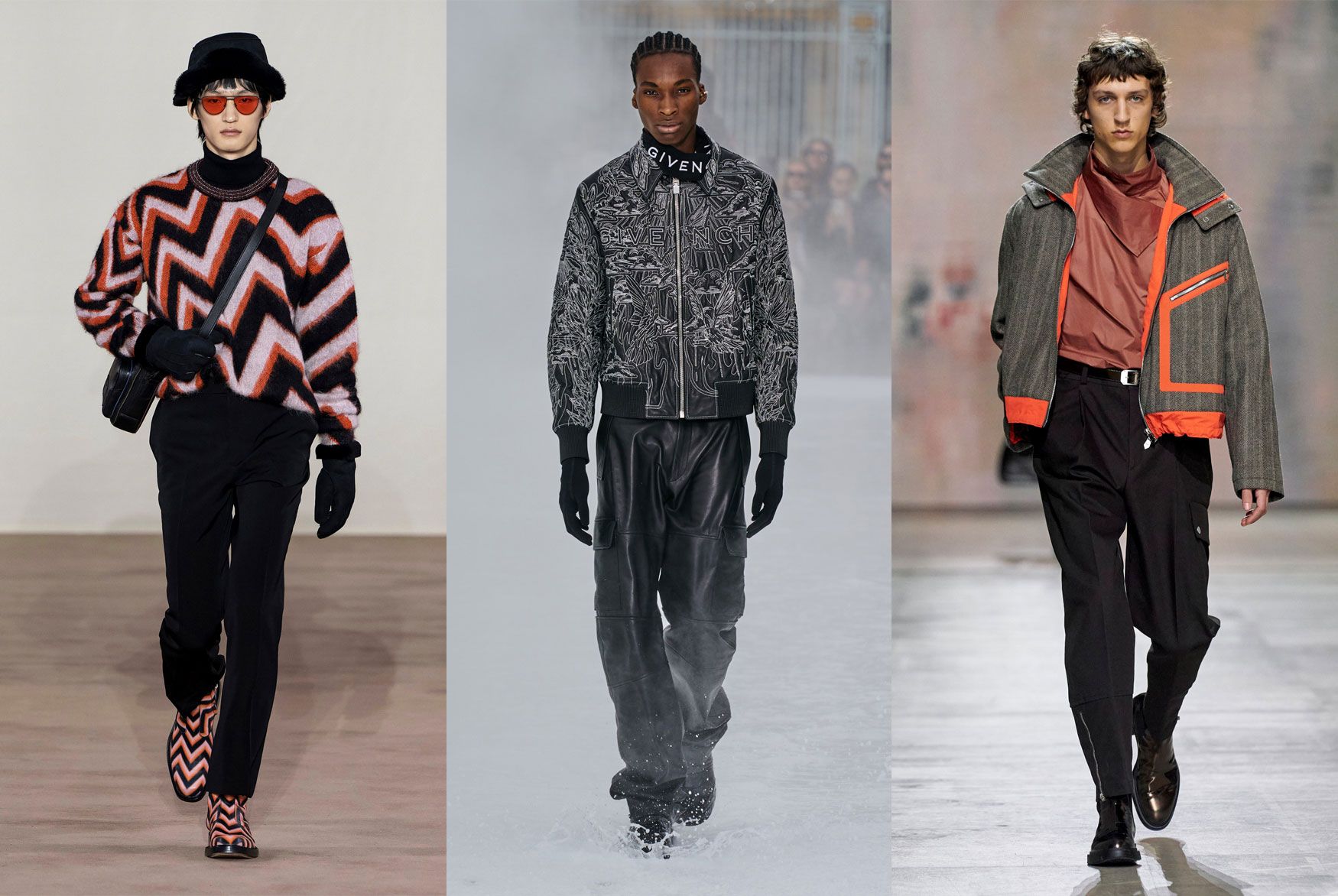Streetwear has become a global phenomenon, evolving from its humble roots in skate and surf culture to become one of the most influential fashion movements of our time. As we approach 2025, the streetwear landscape is set to undergo significant transformations, driven by technological advancements, sustainability concerns, and shifting consumer preferences. This article delves into the future of streetwear, exploring emerging trends and predicting how they will shape the industry in the years to come.
Streetwear is no longer confined to niche communities or underground scenes. It has permeated mainstream fashion, influencing luxury brands, high-end designers, and even fast-fashion retailers. The intersection of streetwear with high fashion has created a unique fusion that continues to captivate audiences worldwide. But what does the future hold for this dynamic movement?
In this comprehensive guide, we will explore the latest streetwear trends for 2025, analyze their implications for the fashion industry, and provide actionable insights for both consumers and brands. Whether you're a streetwear enthusiast or a fashion professional, this article offers valuable information to help you stay ahead of the curve.
Read also:What Happened To Little Carly A Deep Dive Into The Mystery That Shocked The World
Table of Contents
- The Evolution of Streetwear
- Key Streetwear Trends in 2025
- Sustainability in Streetwear
- Technology's Role in Streetwear
- The Rise of Collaborations
- Digital Fashion and Streetwear
- The Streetwear Market in 2025
- Changing Consumer Preferences
- Top Streetwear Brands to Watch
- Conclusion and Future Outlook
The Evolution of Streetwear
Streetwear's journey from subculture to global phenomenon is a fascinating tale of innovation and adaptation. Originating in the 1980s and 1990s, streetwear was deeply rooted in skateboarding, hip-hop, and surf culture. Brands like Stüssy and Supreme played pivotal roles in defining the aesthetic and ethos of early streetwear. Over the years, this once-underground movement has gained widespread acceptance, even influencing luxury fashion houses.
From Subculture to Mainstream
The transition of streetwear into mainstream fashion was marked by several key milestones. Collaborations between streetwear brands and luxury labels, such as Louis Vuitton's partnership with Supreme, highlighted the growing influence of streetwear. Additionally, the rise of social media platforms like Instagram and TikTok has allowed streetwear enthusiasts to share their styles with a global audience, further amplifying its reach.
Key Streetwear Trends in 2025
As we look ahead to 2025, several trends are poised to dominate the streetwear scene. These trends reflect broader societal shifts, technological advancements, and evolving consumer values.
1. Oversized Silhouettes
Oversized clothing continues to be a staple in streetwear, with 2025 seeing an even more exaggerated take on this trend. Baggy jeans, oversized hoodies, and loose-fitting jackets are expected to dominate wardrobes. This trend not only offers comfort but also aligns with the growing emphasis on inclusivity and body positivity.
2. Retro Revival
Retro aesthetics are making a comeback, with 1990s and early 2000s styles influencing modern streetwear. Think bucket hats, graphic tees, and chunky sneakers. Brands are reissuing iconic pieces from their archives, appealing to both nostalgia and contemporary fashion sensibilities.
Sustainability in Streetwear
Sustainability is no longer a buzzword but a necessity in the fashion industry. As consumers become more environmentally conscious, streetwear brands are stepping up to meet these demands. In 2025, expect to see a greater emphasis on sustainable materials, ethical production practices, and circular fashion models.
Read also:Vanessa Benavente Wiki A Comprehensive Look At The Rising Star
- Use of eco-friendly materials such as organic cotton, recycled polyester, and plant-based leather.
- Growing adoption of zero-waste design principles.
- Increased transparency in supply chains, allowing consumers to make informed choices.
Technology's Role in Streetwear
Technology is reshaping the streetwear landscape in unprecedented ways. From digital fashion to augmented reality, tech innovations are enhancing the consumer experience and redefining what streetwear can be.
1. Digital Fashion
As virtual worlds like the metaverse gain traction, digital fashion is becoming an integral part of streetwear culture. Consumers can now purchase virtual garments to accessorize their avatars, blurring the lines between physical and digital fashion.
2. Augmented Reality
Augmented reality (AR) is revolutionizing the way consumers shop for streetwear. Brands are leveraging AR to allow customers to virtually try on clothes, providing a more immersive shopping experience.
The Rise of Collaborations
Collaborations have long been a hallmark of streetwear culture, and this trend shows no signs of slowing down. In 2025, we can expect to see even more unexpected partnerships between streetwear brands, luxury labels, and even tech companies.
These collaborations often result in limited-edition drops, creating a sense of exclusivity and driving consumer demand. For instance, a collaboration between a streetwear brand and a tech giant could produce smart clothing that combines fashion and functionality.
Digital Fashion and Streetwear
Digital fashion is set to play a significant role in the future of streetwear. With the rise of virtual platforms and the metaverse, consumers are increasingly investing in digital clothing and accessories. This shift not only expands the reach of streetwear but also opens up new revenue streams for brands.
According to a report by McKinsey, the global digital fashion market is expected to reach $50 billion by 2025, highlighting the immense potential of this emerging sector.
The Streetwear Market in 2025
The streetwear market is projected to grow significantly in the coming years, driven by increasing consumer demand and expanding distribution channels. By 2025, the global streetwear market is estimated to be worth over $300 billion, making it one of the fastest-growing segments in the fashion industry.
Growth Drivers
- Rising popularity of streetwear among younger generations, particularly Gen Z and Millennials.
- Increased adoption of e-commerce platforms, making streetwear more accessible to a global audience.
- Collaborations and limited-edition releases fueling consumer interest and driving sales.
Changing Consumer Preferences
Consumer preferences are evolving rapidly, with sustainability, inclusivity, and technology playing key roles. In 2025, streetwear consumers will prioritize brands that align with their values and offer innovative products.
Key Consumer Trends
- Growing demand for sustainable and ethically produced clothing.
- Increased focus on diversity and representation in streetwear marketing.
- Adoption of digital fashion and virtual try-ons as part of the shopping experience.
Top Streetwear Brands to Watch
Several streetwear brands are poised to make a significant impact in 2025, thanks to their innovative approaches and alignment with consumer values.
1. Off-White
Off-White continues to be a powerhouse in the streetwear scene, blending high fashion with urban aesthetics. Founder Virgil Abloh's legacy lives on through the brand's commitment to pushing boundaries and redefining luxury streetwear.
2. Palace
Palace has built a loyal following with its distinctive designs and bold prints. The brand's collaborations with major sports teams and artists have further cemented its status as a streetwear leader.
Conclusion and Future Outlook
The future of streetwear is bright, with 2025 set to be a transformative year for the industry. From oversized silhouettes and retro revivals to sustainable practices and digital innovations, the trends shaping streetwear reflect broader societal shifts and consumer preferences.
We encourage readers to engage with this content by leaving comments, sharing their thoughts on social media, or exploring other articles on our site. Together, we can continue to explore the ever-evolving world of streetwear and its impact on global fashion.
Data Source: McKinsey & Company, Fashion Institute of Design & Merchandising Museum, Statista


